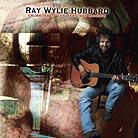October 1999
Unlike most country performers, Hubbard is iconoclastic and free-thinking when it comes to such typically Southern themes as heaven and hell, or Jesus and the Devil. In what is probably the key track of the album, the Dylanesque "Conversation with the Devil," he dreams he gets sent to a hell occupied by preachers, politicians, crooked cops, mothers who spank their kids in K-Mart and runaway fathers. The Devil delights in telling him that "Christian Coalition right wing conservatives, Country program directors and Nashville record executives" are not the folks who make it to heaven. Waking, he kisses his child, tells God "Don’t ever speak to me and thanks anyway," and notes drolly that "Some get spiritual cause they see the light and some cause they feel the heat." Not exactly the kind of stuff that will get you a gig at the Grand Ol’ Opry. Unlike "Conversation," which is laugh-out-loud funny, most of the material on Crusades is brooding and dark. On "There Are Some Days," we meet an angel with torn wings who says "You’re not the only one bleeding here." In "This River Runs Red," the narrator tells of a baptism gone bad. "Airplane Fell Down in Dixie" deals with just that. Still, Hubbard is not all doom and gloom. He sings optimistically, if somberly, on "After the Harvest": "Now for a short time we gather small treasures/And after the harvest there is sweet kingdom come." In the final lines of the album, he confesses that "I am not looking for God/I just want to see what’s next," a fine show of courage and curiosity. Most of the music on Crusades has a familiar feel to it, sharing as it does basic instrumentation of acoustic guitar, mandolin, and dobro. While Hubbard seems committed to maintaining a country/folk sensibility, he enlivens his songs by borrowing from related but still different genres such as blues and gospel. Hubbard also has the good sense to sweeten his growling voice where necessary with high-octane back-up singers. The recording quality and production give the songs a live, fresh first-take feel, although some instruments, such as the accordion, sometimes get swallowed in the mix. All in all, Hubbard’s convincing perspectives and well-crafted, well-performed songs bring new life to a tradition-bound style of music. One hopes that he will inspire other singer-songwriters, particularly in the country music business, to drop their cowboy poses and sing honestly and cleverly about the Big Matters. GO BACK TO: |
 Ray Wylie Hubbard - Crusades of the Restless Knights
Ray Wylie Hubbard - Crusades of the Restless Knights![[Reviewed on CD]](../format/regcd.gif) Ray Wylie Hubbard has been a mainstay of the Austin folk/country/blues/rock
scene for nearly 30 years. On his latest album, Crusades of the Restless Knights,
he demonstrates that he’s still learning and growing artistically, something few
singer-songwriters his age even attempt, much less accomplish. Hubbard sings about many
themes common to country folk: temptation, sin, death, and redemption. However, he does so
with imagination, skepticism, and wit. His songs are honest and confessional yet free of
personal complaints or embarrassing revelations.
Ray Wylie Hubbard has been a mainstay of the Austin folk/country/blues/rock
scene for nearly 30 years. On his latest album, Crusades of the Restless Knights,
he demonstrates that he’s still learning and growing artistically, something few
singer-songwriters his age even attempt, much less accomplish. Hubbard sings about many
themes common to country folk: temptation, sin, death, and redemption. However, he does so
with imagination, skepticism, and wit. His songs are honest and confessional yet free of
personal complaints or embarrassing revelations.